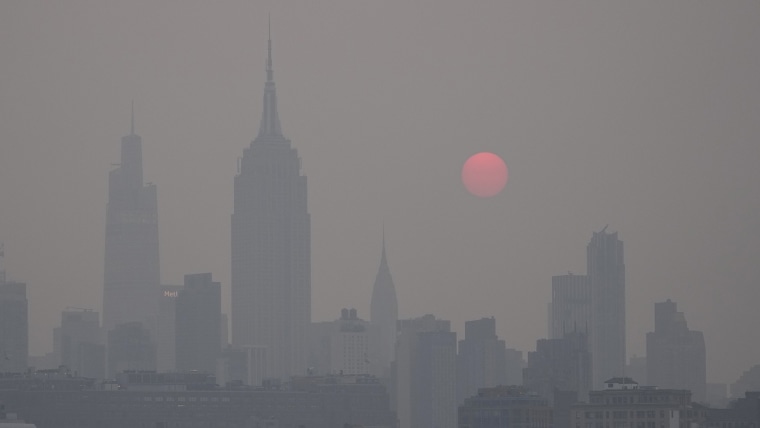"Safety will be the sturdy child of terror, and survival the twin brother of annihilation."
— Winston Churchill, House of Commons, 1955
This chilling line from Churchill captures the grim logic of nuclear deterrence: that peace, paradoxically, may be preserved not by goodwill, but by the shared horror of mutually assured destruction.
Why the nuclear arms race is on again | Mapped Out
💣 Everyone Gets the Bomb: The Twisted Logic of Peace Through Mutual Threat
By: Adaptation-Guide
The dream of a world without nuclear weapons is dead. What remains is the terrifying possibility that global peace may only survive through one thing: the equal ability to threaten unimaginable destruction.
Let that sink in.
Peace might only be possible when everyone is equally capable of annihilation.
The United States ended World War II by incinerating Hiroshima and Nagasaki with atomic bombs.
Today, nine countries possess nuclear arsenals. That number is expected to rise. And if recent developments are any indication, future nuclear states may include not just rogue regimes—but European democracies too.
The disarmament treaties of the 20th century? Broken.
The nuclear umbrella of the United States? Questionable under populist leadership like Trump’s.
The Non-Proliferation Treaty (NPT)?
Crumbling before our eyes.
The Myth of Nuclear Disarmament
In 2021, the Treaty on the Prohibition of Nuclear Weapons came into force—yet not one nuclear power has signed it.
The treaty is noble, idealistic, and utterly toothless. It doesn't answer the most crucial questions:
-
How do we ensure every bomb is dismantled?
-
How do we prevent secret programs from thriving underground?
-
Who enforces nuclear honesty in an age of distrust?
No one even knows the exact number of nuclear weapons in existence. What kind of “disarmament” is that?
The NPT: A Paper Wall in a Nuclear Storm
The 1968 NPT allowed five nations—USA, Russia, UK, France, China—to legally possess nuclear weapons.
The rest of the world? Told to trust these powers and opt out of the game.
Yet India, Pakistan, and Israel never signed on. North Korea walked out. Iran might be millimeters away from a bomb. Saudi Arabia openly suggests that if Iran arms up, so will they.
Nuclear Hypocrisy: A Western Monopoly
Let’s call it what it is: Nuclear apartheid.
The nuclear powers lecture the rest of the world while hoarding the very weapons they claim threaten humanity. They tell others not to join the club—then show up to conflicts with nukes on their belts.
The U.S. protects Europe with a so-called "nuclear umbrella," but Donald Trump labeled NATO allies as freeloaders. Can Europe really count on American defense?
France and Britain have their own arsenals, but they’re limited and dependent. France's force de frappe is built for deterrence under U.S. cover. The UK's Trident missiles require U.S. maintenance. These are not fully sovereign deterrents. They're borrowed power.
Europe's Nuclear Wake-Up Call
Russia can invade Ukraine without serious nuclear repercussions because of one simple fact: They have the bomb, and Ukraine doesn't.
Let that be the wake-up call.
If Ukraine had nukes, would Russia have dared to cross the border?
If Poland, Germany, or Italy had them—would Putin still threaten the EU?
The harsh truth: A world where only a few hold the keys to nuclear hell is more dangerous than a world where every major state has a hand on the trigger.
The Nuclear Domino Effect
South Korea is now openly debating its own nuclear weapons. Japan is quietly reconsidering. The more America withdraws from global leadership, the more others will look to arm themselves.
Why shouldn’t they?
Why should a democratic country stay defenseless while autocratic regimes expand their arsenals?
In a grotesque twist of logic, **the proliferation of nuclear weapons might actually stabilize global tensions—**not because nukes are good, but because they’re equalizers. Autocracies won’t give theirs up. So why should democracies remain vulnerable?
Nuclear Weapons: Humanity’s Mirror
The nuclear weapon is as ambivalent and destructive as the species that created it. Yes, it is monstrous. But its very monstrosity is what keeps monsters at bay.
We imagine a nuclear-free utopia. But utopias require trust—and trust is in short supply. In reality, nuclear weapons have kept wars local. If Ukraine had nuclear weapons, this would not be happening. If every major country had nuclear deterrence, World War III might never come.
Maybe that’s the brutal secret of the last 80 years:
It’s not disarmament that kept the peace. It’s mutual fear.
So here's the controversial truth:
In a world where autocracies arm up and disarmament is a fantasy, universal nuclear deterrence may be the only way left to keep the peace.
It’s dangerous. It’s terrifying.
But it might be the only thing that works.
Related Sources & Links:
Yours truly,


No comments:
Post a Comment